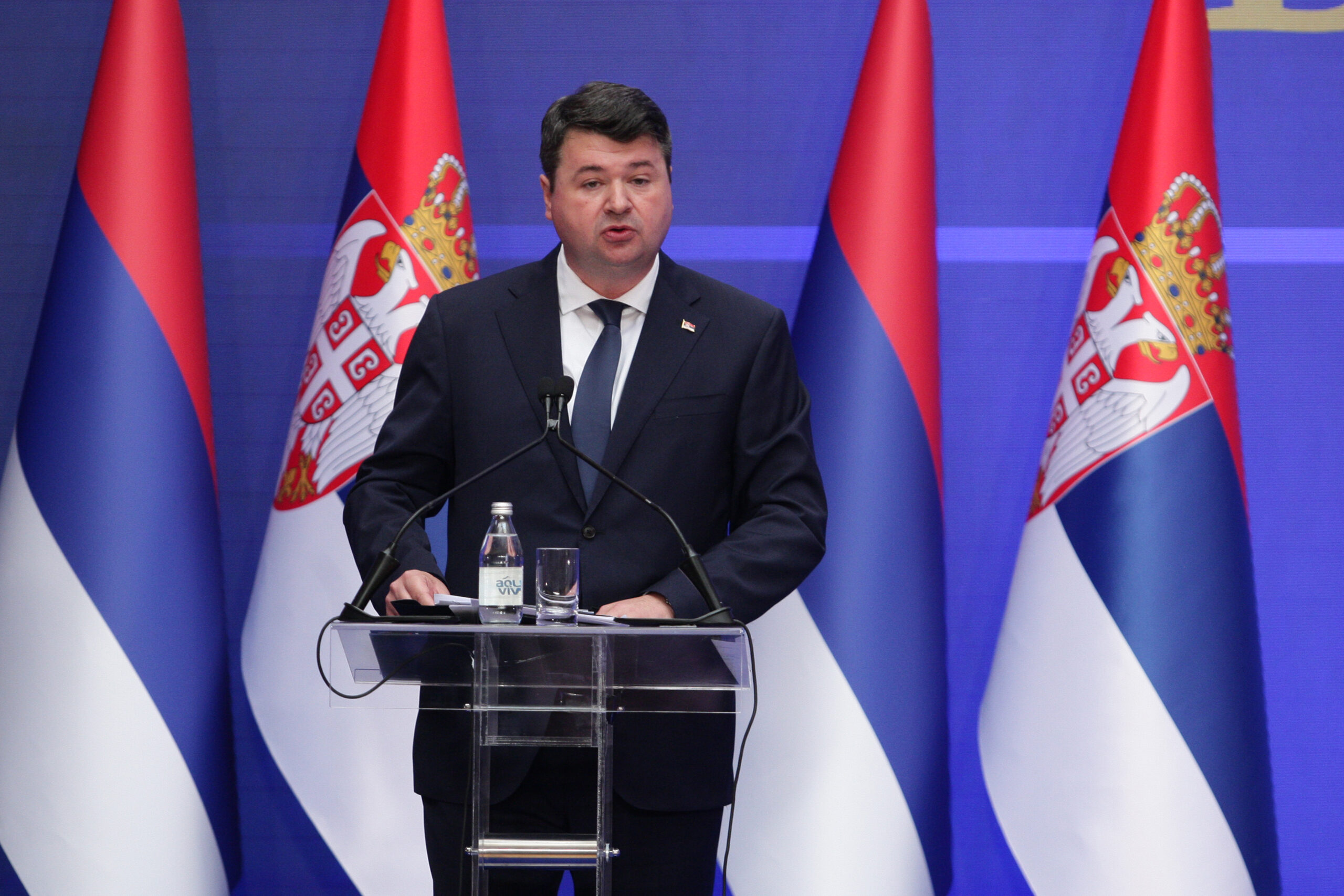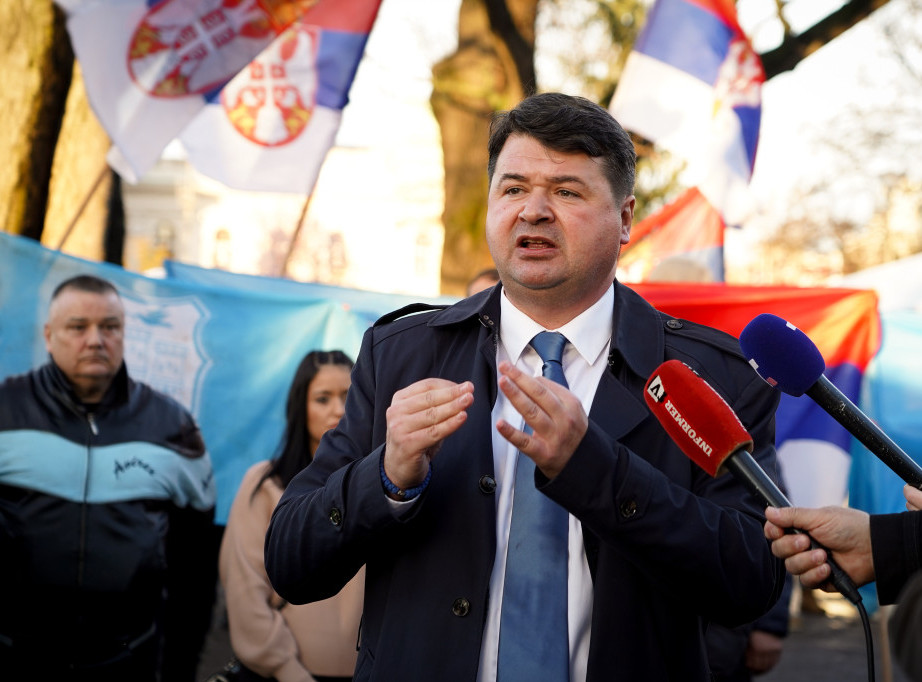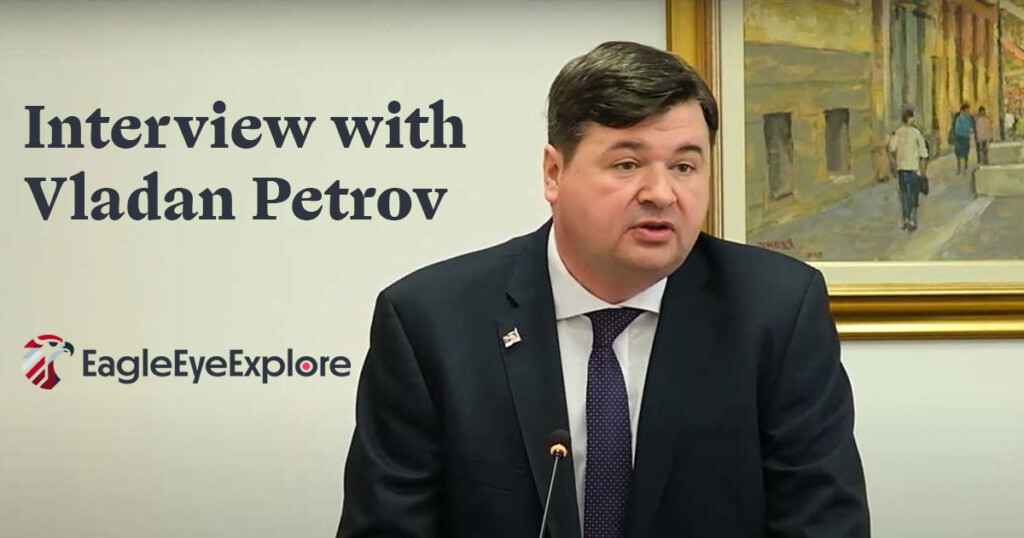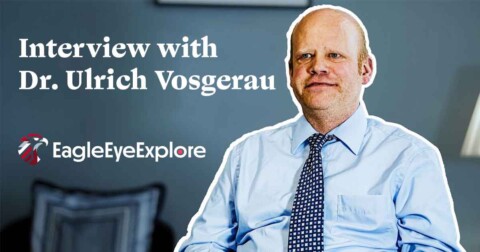The latest constitutional amendments guaranteed greater judicial independence, prosecutorial autonomy, and that justice for citizens would be the absolute priority. Instead, we ended up with a closed judicial system, alienated from both the citizens and the state. In a conversation with Professor of Constitutional Law Dr. Vladan Petrov, who himself took part in drafting the constitutional amendments as a member of the Venice Commission, we learn what the reform was truly meant to achieve, what has been done, and what was deliberately avoided. Petrov points out that it is not enough merely to adopt reforms; for them to truly be implemented in practice, it is also necessary to work on legal awareness.
Do you believe that the 2022 constitutional amendments in the area of the judiciary have fulfilled their main objective — greater independence and accountability of judicial bodies — or have they, in practice, resulted in a more closed system without effective oversight mechanisms?
At this moment, it is not easy to answer this question. I will give two reasons. The first concerns the impossibility of objectively and fully assessing the picture of the “new” judiciary, as it was not automatically established with the entry into force of the constitutional amendments in 2022. Since I was responsible for the expert part of drafting the constitutional amendments, I can state with certainty that these constitutional changes are a civilizational step forward compared to the hybrid and inconsistent system we had under the original 2006 Constitution, and especially compared to the 1990 Constitution. However, no constitutional framework, no matter how good, will yield the expected positive results unless the traditionally poor habits in the judiciary and the institutional system as a whole are changed. Let me mention some of these: circumventing legal provisions or applying them selectively; insufficient transparency of judicial bodies and judicial councils, which, under the Constitution, are independent state bodies responsible for electing judges and public prosecutors and overseeing their work; various forms of nepotism, concentration of power and influence among certain holders of the highest judicial offices; the existence of extra-institutional ties with certain centers of political power in the country or abroad, etc.
Therefore, it is not enough merely to adopt the appropriate laws and by-laws, which was almost entirely done by 2024. It is essential to work diligently and responsibly on changing legal awareness — that is, legal culture. The building of a democratic, as opposed to a partitocratic, culture (by which I mean not only the influence of political parties but also of fluid non-governmental organizations) — one that ensures the judiciary’s genuine autonomy from any political force, whether ruling or opposition, domestic or foreign — is a long and complex process. That is why, immediately after the constitutional amendments came into force, I said that we could expect the first positive results only in five to ten years. This may seem far off, but we must keep in mind that the judiciary in Serbia is burdened by layers of numerous failed, sham, and false reforms since the 1990s. In this regard, we should not forget the judicial “catastrophe” caused by the general reappointment of judges in 2008–2010 by the government at that time.
The second reason why it is too early to make definitive assessments of the latest judicial reform lies in the specific social circumstances in the Republic of Serbia. We are living in a state of societal emergency, one characteristic of which — in the words of Émile Durkheim — is complete anomie, meaning the disregard for fundamental legal and social principles. We are witnessing the suspension of the Constitution and laws in higher education, as well as in other, more or less connected sectors of society. To place the blame for the non-observance of the Constitution and laws solely on the judiciary, and to attribute the cause to the recent constitutional amendments, would be highly hypocritical. Politicians, various self-proclaimed judicial experts, and the like may allow themselves such claims, but a professor of constitutional law must remain scientifically and professionally consistent. This does not mean that, as a professor, I am satisfied with the role of our judiciary or that I do not see certain serious shortcomings, both in terms of personnel and in terms of the system.
How do you explain the increasingly prevalent public perception that certain participants in months-long blockades — including individuals accused of serious offenses — enjoy the protection of parts of the prosecution and judiciary? In other words, has the activity of certain groups within the judicial system created a dangerous precedent of impunity?
You have used the right word — “perception,” which is a subjective view of an event or phenomenon formed based on information we receive from the outside world. Today, that “outside world” is rarely based on documented facts, and predominantly on (dis)information we get from various media outlets and social networks. In this often constructed and imaginary world, numerous falsehoods are spread about judges and prosecutors, and sweeping generalizations are made — which crucially affects ordinary citizens, who then lose what little trust they still have in the judiciary. Without a doubt, greater objectivity in commenting on the actions and decisions of judicial bodies is necessary, regardless of the editorial policy of particular media. Still, the judicial bodies themselves — courts, and especially the prosecution — have, to a great extent, “contributed” to the public’s low trust in the judiciary. Rare communication with the public and irregular reporting of facts relevant to cases that have attracted greater attention or public concern create the impression — and I agree with this assessment — that the judiciary is an alienated, above all detached-from-the-people system. There are reasonable grounds to suspect that some facts are deliberately being hidden or falsified. Therefore, it is essential to establish regular institutional dialogue between judicial bodies and the public. Without it, there can be no more independent, professional, and responsible judiciary.
As for the activities of certain groups within the judicial system, I have no direct knowledge, but the so-called “judicial cliques” are not a new phenomenon. Đorđe Tasić wrote about them between the two world wars, pointing out the dangers of judges bonding based on personal and guild criteria and their self-sufficiency within the system. These phenomena have been fueled by the activities of professional non-governmental organizations, as many judges and prosecutors are members of such groups. This is not prohibited by law and is not inherently bad. I cannot dispute the generally positive external role of the largest such organizations, such as the Judges’ Association of Serbia or the Prosecutors’ Association of Serbia. I was of help to them when their representatives participated alongside the executive branch in shaping the constitutional amendments. I was not one of their “favorite” constitutional lawyers, even though I put my authority on the line to find a compromise between the political authorities and their often absolute demands. I am not directly familiar with their influence within the judicial system, but I do not dispute that it exists and that, in some respects, it is two-way. On the one hand, it has led, at least nominally, to strengthening professional standards and ethics. On the other hand, it has enabled them to become a kind of pressure and interest group, meaning they can exert certain extralegal influence over the organization and functioning of the judiciary. Among some judges, this has created a sort of identity duality. In certain cases, membership in such an association seems to take precedence over the judicial function itself. This — not always, and not with all judges — can produce an effect similar to inappropriate influence on judges and call their impartiality into question. The same applies to public prosecutors.
Do the numerous projects implemented by professional judicial organizations in cooperation with foreign donors have the potential to positively influence the transparency and communication of the judiciary with citizens, or do they carry the risk of foreign influence seeping into the essential functioning of the judicial branch?
It depends on who the foreign donor is, as you put it, and how transparent the project’s objectives are, as well as its outcomes — such as articles, collections, recommendations, expert opinions, etc. I have always been cautious when it comes to certain foreign non-governmental organizations, and it seems they have generally held the same attitude toward me. I would respond to invitations from relevant bodies of the Council of Europe and the OSCE, as these are international organizations with which we, as a member state of the Council of Europe, have a legal obligation to cooperate. Their recommendations are sometimes very useful, but they are applied selectively. In addition, certain solutions reached in cooperation with these bodies are sometimes the result of their insufficient understanding of the national context, but at other times they stem from the current political authorities’ need to pursue their own particular interests — including protecting the personal interests of powerful individuals in political and judicial positions.
Experience has taught me to make a substantial distinction between professional associations. For example, I have not always agreed with the positions of the Judges’ Association of Serbia, but I cannot dispute the relevant role this association has played in decades-long attempts at judicial reform. Ultimately, such associations are entirely lawful and open to membership from a large number of judges. On the other hand, I do not hold organizations such as CEPRIS in high regard, because, from my perspective, they do not separate politics from the profession and operate as quasi-political organizations or pressure groups. As a rule, they turn a blind eye to the political activism of their member judges and prosecutors and, I would say, have a “sectarian” approach — they are closed to broader membership, and their sources of foreign funding are not sufficiently transparent.

How do you view the increasingly prominent role of non-governmental organizations in the selection of judges and prosecutors, through evaluations, training, and participation in shaping judicial policies? Does this threaten the constitutional separation of powers and the independence of the judiciary?
The constitutional separation of powers in a modern rule-of-law state is not threatened by the mere existence and activity of civil society organizations. On the contrary, social dialogue, which is essential for finding sustainable and high-quality normative solutions, as well as for their implementation, is inconceivable without the cooperation of state authorities and non-governmental, particularly professional, organizations. Strictly legally speaking, these organizations do not have their representatives in the judicial councils responsible for ensuring the independence of the judiciary and the autonomy of the prosecution. Those seats are occupied by judges and prominent lawyers, not formal members of such organizations.
As an outside observer, I see three important problems. First, in the past three years, the judicial councils have not achieved the necessary level of cohesion among their members. The impression is that there are sometimes irreconcilable divisions between them, which critically affects the institutional quality of these bodies’ work and undermines their intended constitutional and legal role. Second, they have still not become sufficiently transparent or active in communicating with the public. For example, the High Prosecutorial Council (VST) began live-streaming its sessions on YouTube immediately after its establishment, while the High Judicial Council (VSS) started doing so much later. I have not noticed that the presidents of these bodies are inclined to give interviews to quality media outlets, nor that members are willing to appear in public to explain their role and importance in the judicial system. Many officials in the judiciary think it is enough to occasionally issue a press release, written in rigid and incomprehensible legal language. If you survey ordinary citizens, you will find that the vast majority do not know who appoints and dismisses judges and prosecutors. Third, the “promotion” of these institutions, for various reasons, was left — well before the constitutional changes — to others: foreign and domestic non-governmental organizations, their conferences, and round tables.
We do not have the inclination to build institutions from within and to make personal sacrifices in order to develop and improve internal communication among members and external communication with the public. If you do not do this yourself, others will do it for you — always far worse than you would — and without sufficient visibility, you will struggle to build the social and institutional authority that takes decades to achieve. And, of course, you will always arouse public suspicion that someone else, an institutionally external factor, has a decisive influence on your work. The public is an institutional shield against undue influence and one of the guarantees of independence in work. We still do not understand this enough, and that is why, instead of speaking out publicly, we choose the shelter of silence.
How do you view the demands for the dismissal of Zagorka Dolovac, which have gained support both through a citizens’ initiative and from certain political movements, but in practice are not carried out due to the complex procedure? Has the position of public prosecutor become institutionally unbreakable?
The People’s Party launched a petition for the initiative to dismiss the Republic Public Prosecutor, but such an initiative can have certain political relevance, not legal relevance. The number of collected signatures can certainly draw the attention of the wider public and the National Assembly itself to the need to debate and decide on the responsibility of the Republic Public Prosecutor. I remind you that the election and termination of the function of the Republic Public Prosecutor, as the highest prosecutor in the Republic of Serbia, even after the constitutional changes, remain within the jurisdiction of the Assembly, although its “room for maneuver” has been narrowed. Thus, for example, the Republic Public Prosecutor is elected by the Assembly on the proposal of the High Prosecutorial Council (HPC), with the HPC proposing a single candidate, leaving the Assembly to “choose” whether to accept or reject that candidate. The Republic Public Prosecutor is accountable for the work of the public prosecution and for his or her own work to the National Assembly, but is not responsible for actions in individual cases. The Republic Public Prosecutor is obliged to submit regular annual reports on the work of the public prosecution and reports requested by the competent committee of the Assembly. I pose the question to both the Republic Public Prosecutor and the National Assembly — that is, the Committee on the Judiciary — whether this legally prescribed procedure has been respected to date. Has the competent parliamentary committee, for example, requested an “extraordinary” report concerning the state of the public prosecution after the collapse of the canopy, or regarding the doubts that have arisen in the public over the (non)action of the competent prosecution offices? Furthermore, there is the institute for the dismissal of any prosecutor, including the Republic Public Prosecutor, for reasons prescribed by the Constitution and the law. There is also the criminal offense of violating the law by a judge or prosecutor, which applies to all public prosecutors, and so on.
Finally, although the legal procedure is complex and demanding, the final decision on the dismissal of the Republic Public Prosecutor is made by the National Assembly. The hierarchical “chain” of accountability of public prosecutors and chief public prosecutors is also very precisely prescribed by the Constitution and the law and is not unenforceable. Such cases are indeed extremely rare (for example, in 2023 the HPC dismissed one public prosecutor after it was determined that he had committed two serious disciplinary offenses). Therefore, the assessments made by certain politicians — unfortunately including some lawyers — that the constitutional changes in the judiciary have led to irresponsibility or even the alienation of the public prosecution from the state, are entirely unfounded. I remind you that the public prosecution, from its earliest days — since 1945, when it was constitutionalized — has been the center of a rather separate power, and that no reform to this day has gone, or perhaps dared to go, “deep” enough to fundamentally change that.
In your opinion, would it be justified to consider constitutional or legal mechanisms that would allow for a more transparent and efficient dismissal of the public prosecutor in cases where there is a lack of action in matters of high public interest?
Given the current socio-political context, as well as the complex procedure for amending the Constitution — which requires a constitutional referendum, as was the case in January 2022 — it is not realistic to expect a swift constitutional change. However, as someone who participated in drafting the constitutional amendments, I consider it useful to open a public debate on specific shortcomings of normative solutions or problems in their implementation. We need social dialogue on constitutional and major legislative changes, because without a well-rounded and reasoned — rather than politically opportunistic — discussion, there can be no solutions that will achieve the highest possible level of social consensus. As for legislative changes, they are procedurally easier to implement, but even there we must be careful, because we must not worsen but rather improve the quality solutions contained in the set of new judicial laws from the standpoint of practice. For example, one such issue may be adjustments to the different voting majorities in the High Judicial Council (HJC) and the High Prosecutorial Council (HPC) that undermine the constitution-maker’s intent to ensure a balanced influence of judges, or prosecutors, and distinguished lawyers in these bodies. It might be worth considering the reintroduction of incompetence as a ground for the dismissal of prosecutors, because anyone who has been in the judiciary for a long time will tell you that many mistakes the lay public perceives as deliberate or politically motivated are actually the result of incompetence and insufficient knowledge, followed by negligence and irresponsibility. When you add external pressure — from whoever it may come — it is difficult to expect a public prosecutor, especially in complex cases that attract broad public attention, to act fully in accordance with the law and with the aim of protecting the public interest. And I should not forget one extremely delicate matter: the grounds for the dismissal of the Republic Public Prosecutor and the Chief Public Prosecutor are not exhaustively listed in the Constitution. In this area as well, a prudent legislative intervention would be possible.
Do you think it is necessary, through a special regulation or constitutional provision, to limit the influence of NGOs and external actors in the judiciary, given the possibility of conflicts of interest, financial non-transparency, and political mediation in personnel decisions — as has been done, among others, by most European countries and the United States?
At least two things should be done as soon as possible. First, a social dialogue should be opened on the position and role of non-governmental organizations and the sources of their funding, highlighting both positive and negative examples of their activities, in order to explain to ordinary citizens what NGOs should do and what they must not do. A large number of our people have never heard of many of these organizations, let alone are aware of their decades-long influence on all state structures. Second, it would be worthwhile to form a team of experts, perhaps by the Government, with a set deadline to analyze regulatory activities related to the role and funding of NGOs in European countries, as they too face enormous problems in this area.
The global neoliberal order has moved decision-making processes out of national state structures. The return of state sovereignty and national identity, and thus placing the civil sector under the legal control of the state, will be a long process with extremely uncertain outcomes. One should not too often point to the USA, because the experience of such a powerful state cannot be of great use to us. Moreover, their constitutional order is diametrically different from ours. And, as a rule, I am very cautious when it comes to transplanting Anglo-Saxon solutions and legal methods. Just look at how completely dysfunctional that is in Bosnia and Herzegovina.

If one of the defined goals of the reform was to restore trust in the judiciary, how can we explain the fact that today the number of citizens who perceive the judicial system as closed, politicized, and unreliable is increasing? At what point in the reform process was the key mistake made?
I have already spoken about this to some extent, but a serious analysis should certainly be conducted at the state level. However naïve it may sound, what we need in key positions in the judiciary — and this also applies to the judicial councils, the HJC and the HPC — are courageous people of integrity with high competence and extensive institutional experience, not anemic individuals with a bureaucratic mentality. When establishing a new system in which citizens will have greater trust, it is essential to have prominent individuals who are ready to subordinate their personal qualities to the collective, but also maintain a degree of autonomy from outside attempts — particularly by certain arrogant politicians — to corrupt the new system from the very start. The professional and personal egoism that came from the liberal West has taken such deep root that our people have almost lost their sense of duty toward the state, institutions, and citizens. In such an environment, we can erase and rewrite legal provisions all we want, but the deficit of social authority in the judiciary — as well as in the legislative and executive branches — will only grow. The informal influence of social networks and the media will continue to undermine the state in all its segments. Fortunately or unfortunately, this is not only our problem, but a global one as well.
As a former member of the Pardons Commission, how do you assess the legal framework of the pardon institute in Serbia? Is it defined precisely enough?
The President of the Republic’s authority to grant pardons is provided for by the Constitution. This is a power of the head of state that is recognized by most modern constitutions. In connection with everything else, this authority raises numerous controversies, which is not surprising given that it represents a constitutionally permitted deviation from the principle of the binding nature of court judgments, which implies that only the competent court may review a court decision. A pardon can even “intervene” in the criminal proceedings themselves. This is the case with so-called abolition, when the president’s decision effectively halts criminal proceedings against a particular person. This type of pardon, which exists in our law adopted back in the 1990s, is the most controversial, because by a pardon decision — for certain reasons, usually strictly related to the personality of the pardoned person — the delivery of justice is prevented, and the constitutionally guaranteed presumption of innocence is also brought into question.
Although in a specific case it is often difficult to distinguish whether a pardon is an act of mercy (for example, if there are exceptionally difficult life circumstances on the part of the pardoned person), a corrective to justice (if, for example, a formally lawful court judgment was rendered which is clearly unjust), or an act of political clemency (when an accused is released from criminal responsibility or a convicted person is released from serving part of the sentence in order to achieve certain political effects, such as calming greater socio-political tensions), it should be granted exceptionally and in an extremely restrictive manner. While I was president of the Pardons Commission, President Vučić did not grant a single pardon, and as far as I recall, the Commission issued a positive opinion on a pardon request only once.
The “Pandora’s box” was opened when President Vučić granted a pardon — more precisely, an abolition — to thirteen students and professors who had participated in violent protests after the collapse of the canopy in Novi Sad. Strictly speaking, the president was authorized to do so, and in this way he indisputably fulfilled one of the four initial demands of the so-called students in blockade. He sought to achieve a kind of “fair (political) balance” by pardoning four SNS activists who had injured a girl who attacked the party premises in Novi Sad. Although no president, including ours, is bound by legal reasons when granting a pardon, it seems that in the cases mentioned, there was a lack of individualization of the circumstances related to each pardoned person. These are examples of “collective pardons,” which, even with the best of intentions, as a rule, do not contribute to calming political tensions, but rather serve as an excuse to escalate them.





